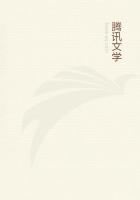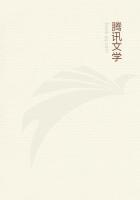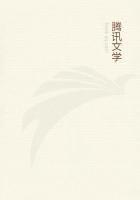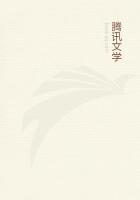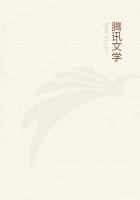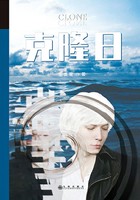The truth is that Godfrey was no true sportsman, really he did not enjoy exterminating other and kindred life to promote his own amusement. Like most young men, he was delighted if he made a good shot; moreover, he had some aptitude for shooting, but unlike most young men, to him afterwards came reflections. Who gave him the right to kill creatures as sentient, and much more beautiful in their way then himself, just because it was "great fun"? Of course, he was familiar with the common answer, that day by day his body was nourished upon the flesh of other animals destroyed for that purpose.
But then this was a matter of necessity, so arranged by a law, that personally, he thought dreadful, but over which he had no manner of control. It was part of the hellish system of a world built upon the foundation stone of death.
Nature told him that he must live, and that to live, not being a vegetarian, which for most of us is difficult in a cold climate, he must kill, or allow others to kill for him. But to his fancy, perhaps meticulous, between such needful slaughter and that carried out for his own amusement, and not really for the purposes of obtaining food, there seemed to be a great gulf fixed. To get food he would have killed anything, and indeed, often did in later days, as he would and also often did in after days, have destroyed noxious animals, such as tigers.
But to inflict death merely to show his own skill or to gratify man's innate passion for hunting, which descends to him from a more primitive period, well, that was another matter. It is true, that he was not logical, since always he remained an ardent fisherman, partly because he had convinced himself from various observations, that fish feel very little, and partly for the reason that there is high authority for fishing, although, be it admitted, with a single exception, always in connection with the obtaining of needful food.
In these conclusions Godfrey was strengthened by two circumstances; first, his reading, especially of Buddhistic literature, that enjoins them so strongly, and in which he found a great deal to admire, and secondly, by the entire concurrence of the Pasteur Boiset, whom he admired even more than he did Buddhistic literature.
"I am delighted, my young friend," said the Pasteur, beaming at him through the blue spectacles, "to find someone who agrees with me.
Personally, although you might not believe it, I love the chase with ardour; when I was young I have shot as many as twenty-five--no--@@twenty-seven blackbirds and thrushes in one day, to say nothing of thirty-one larks, and some other small game. Also, once I wounded a chamois, which a bold hunter with me killed. It was a glorious moment.
But now, for the reasons that you mention, I have given up all this sport, which formerly to me was so great an excitement and relaxation.
Yet I admit that I still fish. Only last year I caught a large hatful of perch and dace, of which I persuaded Madame to cook some that Juliette would not eat and gave to the cat. Once, too, there was a big trout in the Lake Lucerne. He broke my line, but, my boy, we will go to fish for that trout. No doubt he is still there, for though I was then young, these fishy creatures live for many years, and to catch him would be a glory."
After Godfrey had given up his fox-shooting, not because in itself is a terrible crime, like fishing for salmon with herring roe, but for reasons which most of his countrymen would consider effeminate and absurd, he took to ****** expeditions, still in company with Juliette, for Madame stretched Continental conventions in his case, in search of certain rare flowers which grew upon the lower slopes of these Alps.
In connection with one of these flowers an incident occurred, rather absurd in itself, but which was not without effect upon his fortunes.
The search for a certain floral treasure was long and arduous.
"If only I could find that lovely white bloom," exclaimed Juliette in exasperation at the close of a weary hour of climbing, "why, I would kiss it."
"So would I," said Godfrey, mopping himself with a pocket handkerchief, for the sun was hot, "and with pleasure."
"Hidden flower," invoked Juliette with appropriate heroic gestures, "white, secret, maiden flower, hear us! Discover thyself, O shrinking flower, and thou shalt be kissed by the one that first finds thee."
"I don't know that the flower would care for that," remarked Godfrey, as they renewed their quest.
At length behind a jutting mass of rock, in a miniature valley, not more than a few yards wide that was backed by other rocks, this flower was found. Godfrey and Juliette, passing round either side of the black, projecting mass to the opening of the toy vale beyond, discovered it simultaneously. There it stood, one lovely, lily-like bloom growing alone, virginal, perfect. With a cry of delight they sprang at it, and plucked it from its root, both of them grasping the tall stem.
"I saw it first, and I will kiss it!" cried Juliette, "in token of possession."
"No," said Godfrey, "I did, and I will. I want that flower for my collection."
"So do I, for mine," answered Juliette.
Then they both tried to set this seal of possession upon that lily bloom, with the strange result that their young lips met through its fragile substance and with so much energy that it was crushed and ruined.
"Oh!" said Godfrey with a start, "look what you have done to the flower."
"I! I, wicked one! Well, for the matter of that, look what you have done to my lips. They feel quite bruised."
Then first she laughed, and next looked as though she were going to cry.
"Don't be sad," said Godfrey remorsefully. "No doubt we shall find another, now that we know where they are."
"Perhaps," she answered, "but it is always the first that one remembers, and it is finished," and she threw down the stalk and stamped on it.

